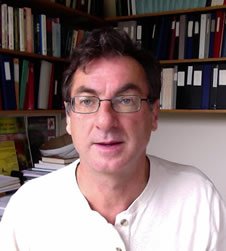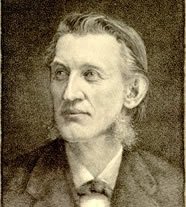SU's Mark Bowick to be honored as new Steele Professor Oct. 31
Celebration culminates with his lecture on 'unusual physics' of soft matter

Mark Bowick, professor of physics in Syracuse University’s College of Arts and Sciences, has been appointed the new Joel Dorman Steele Professor of Physics. A reception in Bowick’s honor will be held on Thursday, Oct. 31, at 3:30 p.m. in room 204 of the Physics Building. It will include a lecture by him at 4 p.m. titled “The Hard Science of Soft Matter.” The event is free and open to the public. For more information, call the Department of Physics at 315-443-3901.
The Steele Professorship is one of the University’s oldest and is named for the 19th-century SU trustee.
“Mark Bowick is deserving of this lifetime honor,” says Arts and Sciences Dean George M. Langford. “An international expert in soft matter, he is a remarkable scientist, teacher, and leader. Professor Bowick also has, to his name, many scholarly publications and a strong track record of professional service.”
Alan Middleton, professor and chair of physics, echoes these sentiments. “The Steele Professorship goes back to the early days of the physics department and of SU, in general,” he says, adding that previous holders include professors emeriti A.P Balachandran (1999-2012) and Kameshwar Wali (1997-98). “Mark is in good company.”
An SU faculty member since 1998, Bowick is a theoretical physicist who studies the relationship between geometry and order in soft condensed matter systems. His research involves the properties of membranes and random surfaces, as well as topological defects in a variety of systems. More recently, he has been examining spherical crystallization in colloidosomes and viruses.
Bowick’s lecture at SU will look at unusual physics that occur in soft condensed matter systems.
“Examples include phase behavior that depends on the relevant length and time scales probed [as in natural rubber and corn starch], novel entropic driven response in cell membranes, and the existence of unusual low temperature states," says Bowick, who also runs SU's Soft Matter Program.
Whereas hard matter (e.g., crystals, glasses, and metals) is governed by atomic forces and quantum mechanics, soft matter forms on a macroscopic scale, often from biological, or organic, molecules. Here, the rules of quantum mechanics do not apply. As a result, the materials are softer and capable of forming a wide variety of structures.
Bowick has held teaching positions at other institutions, including Harvard and Yale universities; Massachusetts Institute of Technology; The University of California, Santa Barbara; and Trinity College in Dublin, Ireland. He is the recipient of numerous honors and awards, including the William Wasserstrom Prize for Excellence in Graduate Teaching and Advising and the Chancellor’s Citation for Exceptional Academic Achievement. Born and raised in New Zealand, he earned a Ph.D. in physics from the California Institute of Technology.

SU’s Department of Physics has been educating students and carrying out research for more than 125 years. Graduate and undergraduate opportunities are available in fields ranging from biological and condensed matter physics, to cosmology and particle physics, to gravitational wave detection and astrophysics.
Media Contact
Rob Enslin
